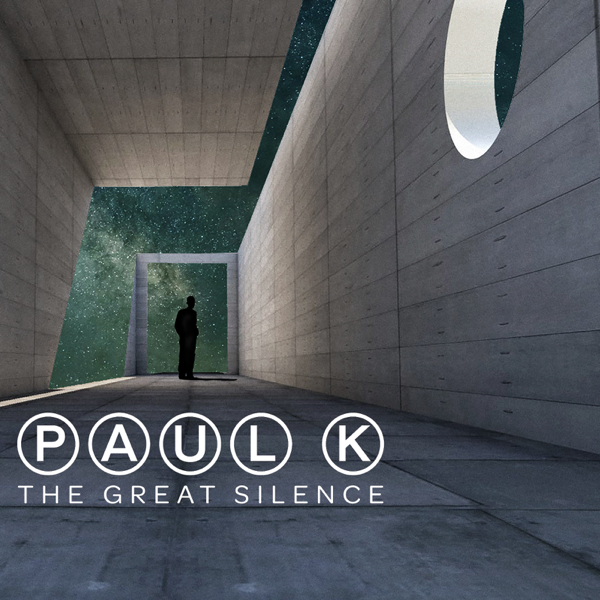
Paul Kirkpatrick, under his pseudonym Paul K, is a British composer, producer, musician and songwriter who is also known for being one half of the electro-rock duo Glitch Code. Here he is combining electronic music with strings, samples, fretless bass, electric and acoustic guitars and even uses real drums! The Fermi paradox, named after Italian-American physicist Enrico Fermi, is the apparent contradiction between the lack of evidence for extra-terrestrial civilizations and estimates for their probability. Paul says the album itself “explores themes of isolation, whether that be digital isolation through omnipresent social media on planet earth, or further afield into the surrounding unknown”. In addition to the music he has also sourced some audio files, “So I have Joe Silk and Mario Livio, the famous Oxford Professors, discussing the Fermi Paradox based on Enrico Fermi’s famous quote “So where is everybody?”, in relation to alien life and I have Frank Drake from SETI (Search for extra-terrestrial Intelligence ) talking about the Drake Equation which he developed in the 1960s to determine how many intelligent civilizations there should be in just our universe.” If that isn’t enough he also has a reading of a poem by the famous holocaust poet Abraham Sutzkever.
This may lead one to think that this is a difficult album to listen to, filled with complex theories and discussions, but nothing could be further from the truth as it is so easy to listen to and get involved with. I can imagine this would be the perfect music to listen to when down at Aoraki Mackenzie International Dark Sky Reserve (google it), laid back in the hammocks and letting the light from the stars fall into our eyes and minds. The famous quote from Kennedy comes in (“We choose to go to the moon in this decade and do the other things, not because they are easy, but because they are hard”) and fades out so we hear the Apollo lift off in the background. But instead of being music for a film track, it is the words and speeches here which give the support to the music, assisting us in finding the path as we travel along the journey being described for us by Paul.
Reminiscent at times of both Vangelis and Tangerine Dream, this music has more electric guitar than either, while the bass is probably the single most important instrument in terms of grounding the music. This is not an album to just dip in and out of, and certainly not one to shuffle (for which there is never any excuse by the way), as it builds through its course. It is an album to be played at night, a good spirit or pinot noir to hand, and just let the music take you to places far beyond your ken. Superb.
8/10 Kev Rowland


